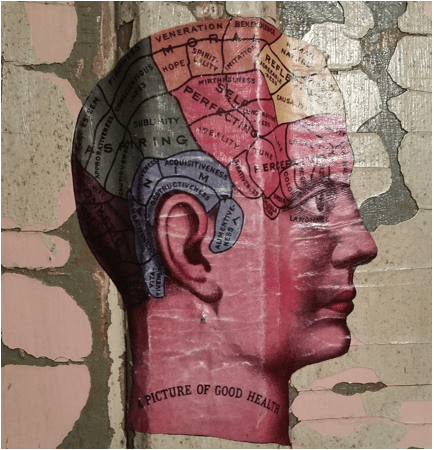After I received my bachelor’s degree in recreation therapy, my first job was at Adler Mental Health Center, a state psychiatric hospital for children and adolescents. Adler was where I “cut my teeth” as a mental health professional, and a place where I worked with incredibly smart, committed, and dedicated people. Located in Champaign, Adler had the benefit of also being connected to the University of Illinois. Most of us were U of I alumni. Many of us were pursuing advanced degrees, so Adler also served as a rich source for research. We fought hard when the governor announced he intended to close Adler. Despite community support and advocacy efforts, however, Adler closed its doors in 1982. I’m providing this background information to give some context to my acceptance of “not knowing.”
The Beginning of Not Knowing
Adler was the place where I thought I knew everything. I was a fresh graduate of the University of Illinois, 22 years old, and certain I knew more than most of the veteran staff who worked there. I’d often see an interaction with a child and think to myself: “I’d handle that much differently.” Much differently, at the time, meant better.
All of that changed on a summer afternoon before dinner. I was outside with a group of kids playing games when my supervisor called us in to get ready to eat. I chaperoned the young people into their bathrooms to wash their hands and stopped in the staff office to say hello. As I walked into the office, my supervisor said to me: “Jeff, you are really really good with those kids.” She was, of course, reaffirming what I already knew about my skills. And with a challenging yet warm smile, followed that with: “Now you just need to figure out why.”
What? What was she talking about? It’s 32 years later and I can still remember those words echoing in my head: “Now you just need to figure out why.” Initially, I was crushed, taking her statement as criticism. I thought about it for days and tried to dismiss it. The more I thought about it though, the more I realized she was absolutely right. I was doing good work, but I had no clear idea why what I was doing worked.
The Freedom of Not Knowing
I tell that story many times each year. Sometimes I share it with people I supervise. Other times I share it with students, and sometimes with clients. It was a lesson in humility and, on some level, permission to “not know.” I thought I had to know everything and that being effective meant knowing all the answers. As I’ve grown older, I’ve realized I don’t know, and maybe never will know, all that I think I should.
I bring that not knowing into my work every day. When a student, client or supervisee used to ask me a question, I used to feel pressured to be able to answer correctly, in the moment. Now, I realize that I don’t have to know, but I can sit with the “not knowing” while we try to understand something together. Other times, I just may not know the answer to a factual question. This happens many times when I teach graduate students, many of whom believe they need to know everything, much as I did at 22. But finally, after 32 years, I feel more comfortable simply saying “I don’t know, but I’ll see what I can find out.”
I’m reminded of a supervision group I facilitated for young clinicians seeking to accumulate hours for licensure. When the group concluded and everyone had met the requirements to take the licensing exam, we had one final meeting where we debriefed our experience in the group. When I asked what stood out as most helpful, one extremely bright and talented young woman quickly shared: “When you would say you didn’t know something. It gave me permission to not feel incompetent when I don’t know something.”
I’ve had similar experiences with clients. I may be asked very directly why I think someone is engaging in a behavior that they know isn’t helpful but can’t seem to change. When I respond with “I don’t know,” I’m met with “but you’re supposed to know. That’s why I come here.” This almost always leads into a rich discussion about our partnership in therapy; that together leaning into the “not knowing” can lead us to changes that might never have occurred had I “known everything.”
The Humanity of Not Knowing
I marvel at how much I don’t know as I get older. There are books I want to read, workshops I want to attend, courses I want to take. I have many moments of feeling inadequate and stumped. I’m reminded of a colleague with more years experience than I, saying that sometimes in the middle of a session with a client, she hears a voice in her head say “will the real therapist please stand up?” Another reminder that despite extensive experience, we can never know everything and that doesn’t make us incompetent or fraudulent. It makes us human.
I’ve come to believe that as long as we remain committed to learning, to seeking answers, and to being honest when we don’t know something, we can still do “really really good work.” Sometimes we’ll figure out why, and sometimes we’ll keep searching.
The teacher who is indeed wise does not bid you to enter the house of his wisdom but rather leads you to the threshold of your mind.
—Kahlil Gibran
Written by Jeff Levy, LCSW, CTRS

